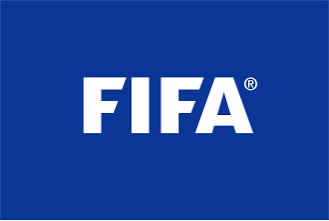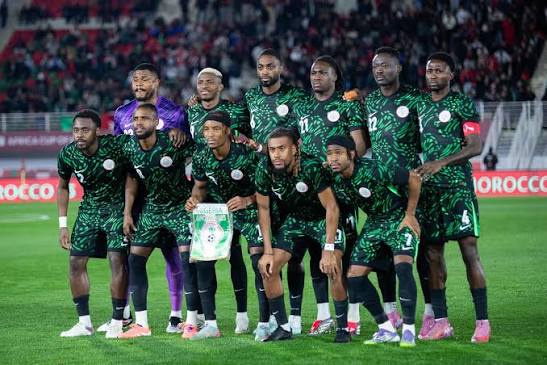
By Kadiri Abdulrahman
On May 29, 2023, President Bola Tinubu took oath of office, pledging among other things, to reboot the economy.
His ‘Renewed Hope’ agenda offered high expectations, especially in the president’s capacity to provide adequate security and a working economy considering the country’s challenges before his inauguration.
24 months down the line, some Nigerians believe that the president has done well considering the myriad of challenges he met, while others believe there is a need for more deliverables.
Tinubu had, during his inauguration, announced to Nigerians that ‘subsidy is gone’, effectively ending the regime of the Federal Government subsidising and regulating the price of petrol.
Shortly after, the president also embarked on foreign exchange market reforms by unifying the then-existing dual exchange rate and adopting a free float of the Naira through the willing buyer/willing seller model.
These two policies, focusing on the fiscal and monetary segments of the economy, were adopted by the president, and subsequently, Mr Wale Edun as Finance Minister and Yemi Cardoso as Governor of the Central Bank of Nigeria.
Experts say the adoption of the Naira float resulted in a free fall of the value of the currency, depreciating from N470 to the dollar official rate before May 29, 2023 to an all-time low of N1,900 to the dollar by March 2024.
According to the National Bureau of Statistics, the headline inflation rate of 34.19 percent in June 2024 is a significant increase from 33.95 percent in May 2024.
“This spiraling inflation is impacting the prices of basic commodities, particularly food, with food inflation rising to 40.9 percent year-on-year in June 2024,’’ NBS reported.
An economist, Prof. Ken Ife, urged Nigerians to be patient with the Tinubu-led government while the various economic reforms come to fruition.
Ife, the Lead Consultant on Private Sector Development to the ECOWAS Commission, said that the economic reforms, though biting, were necessary bitter pills to reposition the ailing economy.
“Our economy was in an intensive unit, very sick in crisis; everything went wrong, N23 trillion Ways and Means, almost N100 trillion debt; debt-to-Gross Domestic Product ratio at almost 40 percent, debt service to revenue of more than 90 percent.
“Two years down the line, we are now in a recovering position,” he said.
He said Nigerians had to make sacrifices.
According to Dr. Chijioke Ekechukwu, an economist, the idea of reforms is that there is ‘light at the end of the tunnel.’
Ekechukwu, a past president of the Abuja Chamber of Commerce and Industry, said that reforms usually come with relief if sincerely carried out. He urged Nigerians to give Tinubu some more time to see his various economic reforms come to fruition.
“When there are reforms, they bite hard, but the idea is that there should be light at the end of the tunnel. The government embarked on a lot of reforms to reposition the economy, the removal of fuel subsidies to make more money available for other sectors.
“That has actually increased government revenue; same with the floating of the Naira, even though it has also contributed to inflation; interest rate today is about the highest in Africa. The higher the interest rate, the higher the cost of production and the cost will be passed over to the consumers.’’
According to Ekechukwu, generally, there is a growth in the economy.
“The GDP is growing to the extent that the World Bank and International Monetary Fund have improved on their projection for Nigeria.
“We are happy to have our net foreign currency reserve increase to 23.11 billion dollars at the end of 2024, considering that it went down to 3.99 billion dollars in 2023.
“Therefore, to have an unencumbered fund up to N23.11b is quite encouraging; we expect that it continues to uptick from here and never go down drastically again.’’
He said that the more it grew the more stable the economy would become.
“The lower our exchange rate, the lower the inflation rate, the less the cost of living, and the higher the standard of living.
“We can sustain the increase in our net external reserve by ensuring that our oil and non-oil exports continue to increase; that we reduce the importation of petroleum products; we continue to fight oil theft and produce up to OPEC quota and installed capacity when allowed.”
He, however, said that insecurity was still a major challenge.
“Unfortunately, not enough has happened to insecurity, and it is a major bane of our economic development,” he said.
He said that while appraising the Federal Government, Nigerians should also consider the performances of states and Local Government Councils.
More so, experts say that the annual budget is a vital tool for the government to actualize its economic and developmental plan for each fiscal year.
A financial expert, Prof. Uche Uwaleke, said that the 2025 “Budget of Restoration: Securing Peace, Rebuilding Prosperity” reflected its title.
He commended the fact that the lion’s shares went to defence and security (N4.91 trillion), infrastructure (N4.06 trillion), education (N3.52 trillion), and health (N2.48 trillion).
Uwaleke, the Director of the Institute of Capital Market Studies at the Nasarawa State University, Keffi, said that the budget projected that inflation would moderate to 15 percent in 2025, while the Naira would appreciate to N1,400 per dollar.
According to him, the projection is on the back of the expected reduction in the importation of petroleum products.
“This is alongside increased export of finished petroleum products, bumper harvests enabled by enhanced security, as well as increased foreign exchange inflows,” he said.
He said that effective implementation of the budget would go a long way to determine Tinubu’s mid-term performance.
Meanwhile, the Africa Development Bank said that Nigeria’s economic reforms rolled out since May 2023 had boosted the country’s economy.
The AfDB communicated this in its African Economic Outlook 2025 released at its Annual Meetings in Abidjan.
According to the report, services contributed to three-quarters of the growth of Nigeria’s Gross Domestic Product.
The report attributed 13 percent to industry growth, driven by higher oil production, which rose 2.8 percent to 1.56 million barrels per day in 2024.
It said that agriculture production supported by competitive domestic prices contributed nine percent to GDP growth.
“Demand was moderated by suppressed consumption due to higher prices; market determined petrol prices increased 77 percent, and the Naira weakened 42 percent during 2024.
“Both key underlying factors contributed to inflation, which stood at 33.2 percent in 2024, up from 24.7 percent in 2023.
“To dampen inflation pressures, the CBN tightened the policy rate to 27.5 percent,” it said.
The report said that a fiscal deficit of 3.9 percent of GDP, which was marginally lower than 4.0 percent in 202, was largely driven by increased non-oil revenue.
It said that non-performing to gross loans ratios fell to 4.1 percent in mid-2024 from 4.4 percent in 2023
A civil servant, Abbas Ibrahim, described the last 24 months of the Tinubu presidency as tough on workers.
‘Amid all these reforms, the Nigerian worker is the worst hit,” he said.
Some civil servants, however, decried the hardship in the country, occasioned by some economic policies of the Federal Government.
The civil servants, particularly, complained about the unclear implementation of the new minimum wage of N70,000, delay in paying the outstanding wage award of five months, and other welfare lapses.
Worthy of mention, the Central Results Delivery and Coordination Unit, established in June 2023 and headed by Hadiza Bala-Usman, is tasked with officially evaluating ministerial performance and presenting its scorecards.
The scorecards focus on the performance of the various ministries for the first quarter of 2025 as Tinubu’s administration enters its mid-term on May 29.
As Tinubu’s administration rolls out the drums to celebrate its two years in office, most Nigerians suggest that the president should take stock and reevaluate his renewed hope agenda in comparison with the social and economic reality of ordinary Nigerians.
They urge the government to reevaluate its strategies and adopt realistic policies that would ease economic pain in the shortest possible time.
·Abdulrahman writes for the News Agency of Nigeria









